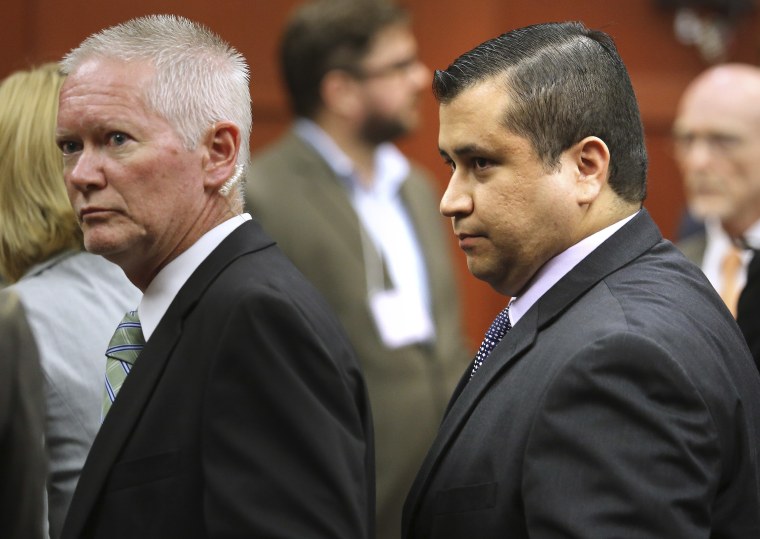For the six Florida jurors who decided the fate of George Zimmerman, four minutes likely proved crucial. Saturday night, after hours of deliberation, a jury found Zimmerman not guilty of second-degree murder or manslaughter in the death of Trayvon Martin. Zimmerman claimed he shot the unarmed teen in self-defense following a confrontation in Sanford, Fla., in February of 2012.
During those four minutes the 29-year-old Zimmerman claimed he was attacked by the teenager and brutally beaten before he reached for his concealed nine-millimeter handgun and shot Martin in the chest in order to save his own life.
Zimmerman's defense attorney Mark O'Mara set aside four minutes of his closing remarks during which the jurors heard only silence. While prosecutors claimed that Zimmerman spent that four minutes stalking Martin, Zimmerman claimed he followed a police dispatcher's advice to abandon pursuit and headed back to his car when Martin attacked him.
Prosecutors sought to sow doubt in jurors' minds about Zimmerman's honesty, pointing to inconsistencies in his story they claimed were designed to concoct a narrative of self-defense Zimmerman allegedly knew would be necessary to prove his innocence. But even if the jury did not trust Zimmerman, the burden of proof was on the state to prove beyond a reasonable doubt that his story was untrue. The defense needed only to sow enough doubt for an acquittal, not prove that everything Zimmerman said was accurate or honest. The defense didn't have to prove that Zimmerman was a good person or model citizen—or even that he was telling the truth about what happened—they only needed to prevent the state from ensuring that the jurors felt certain beyond a reasonable doubt about what happened during that four minutes.
Removing reasonable doubt was what the prosecution believed the testimony of Rachel Jeantel, who was speaking to Martin on the phone before his encounter with Zimmerman, would do. Jeantel testified that Martin was frightened because he was being followed, and that she heard Martin ask someone why that person was following him, before shouting "get off." After that, Jeantel said, the call went dead.
There were prior inconsistencies in her account regarding her age, and whether she had attended a wake for Martin, leading observers to speculate on whether the jury would find Jeantel believable. Given the jury's verdict, it seems likely that they did not, or that even if they did, it was insufficient to account for those four minutes during which only two people truly know what happened.
Only one of them is still alive.
